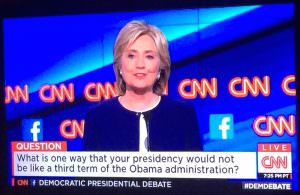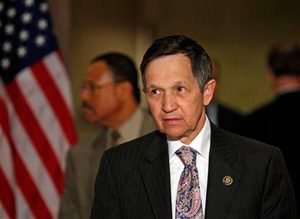A Reagan Democrat
Sen. Jim Webb replied to Bush's State of the Union speech with a moral clarity almost unheard-of since the days of The Great Communicator.WASHINGTON — Like him or not, Ronald (“Tear Down This Wall”) Reagan spoke in a clean, clear prose that almost always left listeners with a sense that he stood for something.
It may thus be no accident that Jim Webb, Virginia’s new Democratic senator, was once a Reaganite.
In his reply to President Bush’s State of the Union speech on Tuesday night, Webb defined the two central moral issues that animate most of the Democratic Party’s rank and file: the mess in Iraq and the fact that the fruits of a growing economy are not being shared by all Americans.
Then Webb did something rather astonishing: He didn’t fudge on his language or try to take the hard edge off his impatience with the status quo.
Giving the speech in response to a president’s State of the Union address may be the hardest assignment in politics. Even the best of the genre reek of focus-grouped and poll-tested sentences. You have the feeling the words are dictated by some party pooh-bah who believes the speech will fail if it does not touch all the issues on every strategist’s list.
Gee, say the consultants to the poor politician who has to carry the party’s torch, you just have to mention healthcare and child care and the environment and union rights and stem cell research — and every other issue that energizes some base voter in some corner of the party.
And, oh yes, Mr. Politician, you can’t forget that your real targets are those critical moderate independent swing voters in the Midwestern and Rocky Mountain states, and here’s a list of key phrases we’ve polled to death that they respond to. You have to throw them in somewhere.
Ever wonder why politicians are so often accused of offering mush?
There was no mush from Webb. On the contrary, he tried only to make his two points, on Iraq and inequality, and showed what he was upset about.
Many Democrats tremble that they will be accused by some right-wing website or presidential spokesman of waging class warfare. Webb made clear that there is a class war going on, and that the wrong side is winning it.
“When I graduated from college, the average corporate CEO made 20 times what the average worker did,” Webb said. “Today, it’s nearly 400 times.”
OK, that’s a standard sort of line from your standard progressive speech. But then came this arresting sentence: “In other words, it takes the average worker more than a year to make the money that his or her boss makes in one day.”
Examine that closely. How many politicians out there raising campaign contributions from rich people are willing to use boss, instead of a more respectful locution?
And by talking about the time it takes someone to earn a buck, Webb makes it impossible for anyone to forget how vast the inequalities in our society have become.
Webb knows whom he is fighting for. “We’re working,” he said, “to get the right things done, for the right people and for the right reasons.”
On Iraq, Webb did not mince his words about Bush’s responsibility. “The president took us into this war recklessly,” he declared.
Instead of qualifying this strong statement, Webb backed it up: “He disregarded warnings from the national security adviser during the first Gulf War, the chief of staff of the Army, two former commanding generals of the Central Command. …” The list more than supported Webb’s next thought, that “we are now, as a nation, held hostage to the predictable — and predicted — disarray that has followed.”
OK, even Webb held back on a couple of politically sensitive points. He offered workers an all-purpose promise on the trade issue that so divides his party. “Government,” he said, “has a duty to insist that their concerns be dealt with fairly in the international marketplace.”
And, yes, he simultaneously came out against “a precipitous withdrawal” from Iraq and in favor of “a formula that will in short order allow our combat forces to leave Iraq.” Philosophers and lexicographers might debate the difference between the words precipitous and short order.
But Webb’s performance was a salutary sign that Democrats just might be getting over the battered-party syndrome that has left so many of them terrified of saying exactly what’s on their mind. Then again, maybe Webb was just speaking for himself. Having lived on the Republican side of politics during the Democrats’ most traumatic years, he may have escaped the traumas associated with defeat.
E.J. Dionne’s e-mail address is postchat(at symbol)aol.com.
Copyright 2007, Washington Post Writers Group
Your support matters…Independent journalism is under threat and overshadowed by heavily funded mainstream media.
You can help level the playing field. Become a member.
Your tax-deductible contribution keeps us digging beneath the headlines to give you thought-provoking, investigative reporting and analysis that unearths what's really happening- without compromise.
Give today to support our courageous, independent journalists.








You need to be a supporter to comment.
There are currently no responses to this article.
Be the first to respond.